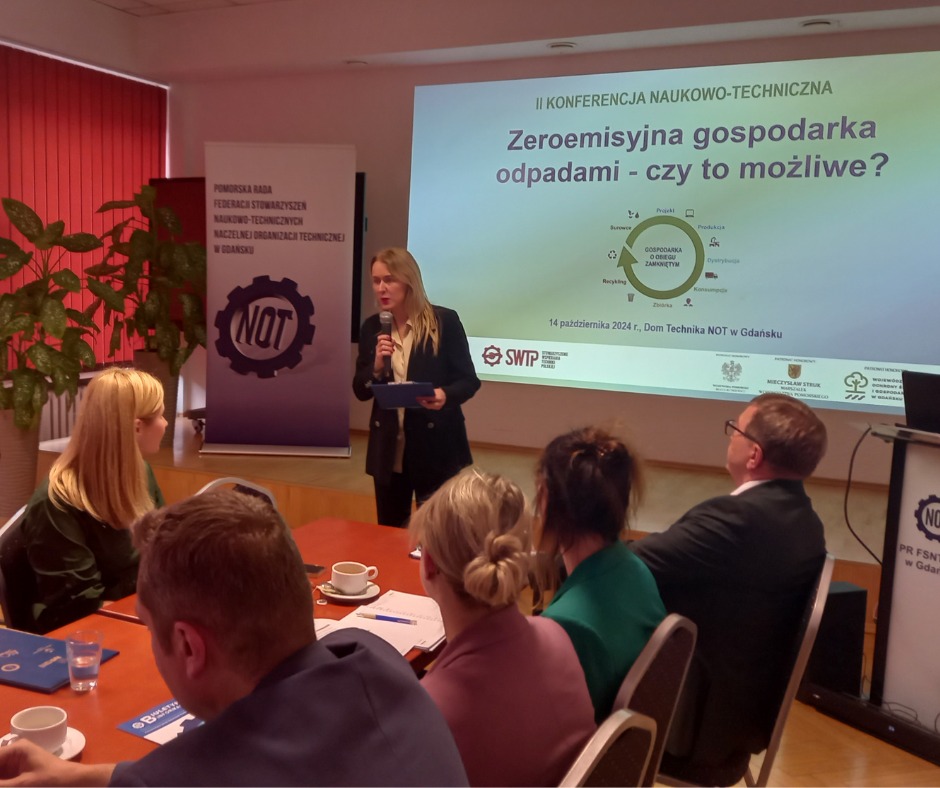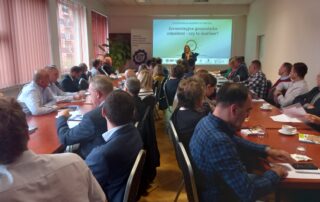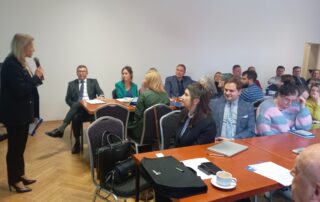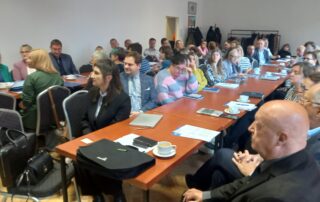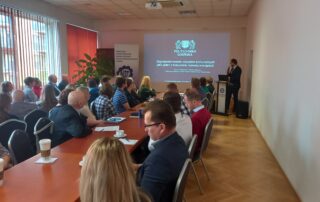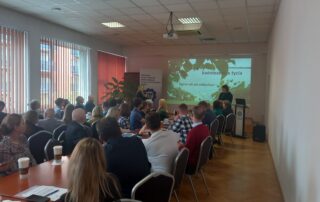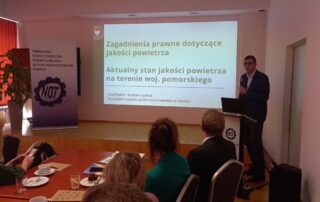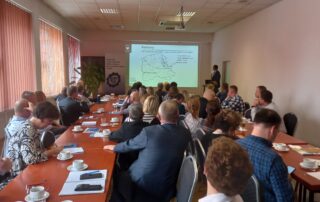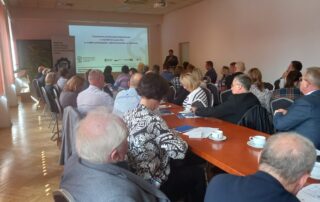The main topic of the conference organised on 14 October 2024 by the Pomeranian Council of the Federation of NOT Scientific and Technical Associations in Gdansk was modern recycling methods and their impact on the environment, with particular emphasis on air quality. The event at Dom Technika NOT in Gdańsk was moderated by Sylwia Mrozowska, PhD, DSc, Prof. UG, Director of the Centre for Sustainable Development UG and Barbara Kijewska, PhD, Prof. UG, coordinator of the CZRUG Internship Programme.
As emphasised by the organisers, the aim of the conference was to present technological solutions allowing the use of municipal waste in district heating and power systems. The event was held under the honorary patronage of Pomeranian Voivode Beata Rutkiewicz, Marshal of the Pomeranian Voivodeship Mieczysław Struk and the Voivodeship Fund for Environmental Protection and Water Management in Gdansk.
The first panel concerned modern waste management technologies. Bogdan Sedler, PhD, engineer, spoke with scepticism, pointing to the problem of capturing dioxins and furans produced during waste incineration. At the same time, he presented the technology of the adaptiveARC company from the United States, which makes it possible to convert waste into energy.
The management of municipal waste is one of the directions of energy development. The presentation by Paweł Ziółkowski, PhD, from the Gdansk University of Technology, referred to the results of the NCO2PP project aimed at developing a technology allowing the use of sewage sludge to produce electricity while having a positive impact on the environment. The researcher pointed out that science develops in correlation with novelties that can appear on the commercial market even after a long implementation period. Therefore, there is a need for long-term cooperation between science and industry.
Slawomir Kiszkurno, CEO of Port Clean Energy (PCE), talked about good practices for closed-loop municipal waste management using Port Clean Energy as an example. As he pointed out, PCE has been equipped with a state-of-the-art high-efficiency flue gas cleaning system that meets the highest environmental standards. The port also takes care of the circularity in terms of the water cycle, for example rainwater from the roofs of the facilities (rainwater) is collected in a special underground tank, then used for the maintenance of green areas as well as for technological processes.
Iwona Damps-Kostańska, PhD, from the UCK Department of Pneumonology and the Department of Pneumonology and Allergology at GUMed, talked about the impact of smog on the respiratory system. The researcher warned that acid smog paralyses the bronchi, respiratory tract and circulatory system. In Poland, 3,500 people die prematurely every year because of it.
Incineration plants, i.e. installations for the thermal processing of waste in the public mind, often arouse controversy and unfounded doubts. All myths on the subject were verified by Alicja Nadarzyńska, Environmental Protection Director of Port Service Sp. z o.o. As she emphasised, modern incineration plants are equipped with multi-stage treatment systems to ensure an adequate level of waste gas purification, and the energy potential of the waste is exploited through energy recovery. The reluctance of local residents to locate incinerators is disproportionate to the risks posed by illegal landfills. In Rogowiec near Belchatow alone, 50,000 tonnes of hazardous waste is stored in the largest illegal landfill.
Paweł Babul, Environmental Protection Inspector at the Voivodeship Environmental Protection Inspectorate in Gdańsk, presented legal issues concerning air quality and the current state of air quality in the Pomeranian Voivodeship. The biggest problem in the Pomeranian Voivodeship is high concentrations of benzo(a)pyrene contained in particulate matter PM 10. As in previous years, high concentrations of this pollutant were recorded during heating periods, indicating a problem with residential heating based on fossil fuels.
Łukasz Tamkun, President of the Management Board of the Voivodeship Fund for Environmental Protection and Water Management in Gdańsk, talked about the financing of environmental projects in the Pomeranian Voivodeship. The Fund emphasises the creation of conditions for the implementation of financing environmental protection and water management, as well as the ecological effect, including reduction of energy consumption, reduction of emissions, reduction of water losses, retention of environmental water, reduction of the amount of waste produced, or energy recovery.
An important part of the conference was the discussion with the participants, a large part of whom were local government employees dealing with municipal waste and energy efficiency in the municipality. The issues raised are a major challenge for local government, in view of the challenges posed by climate and energy policy and the social and economic needs of residents and the region.


